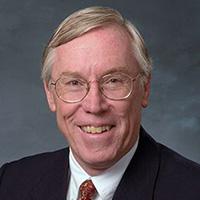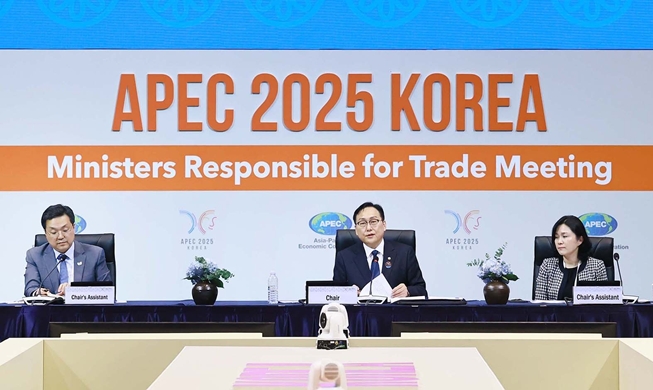- 한국어
- English
- 日本語
- 中文
- العربية
- Español
- Français
- Deutsch
- Pусский
- Tiếng Việt
- Indonesian

By Mark Peterson
Professor emeritus at Brigham Young University
One of the more outstanding qualities of Korean culture is the value placed on education. By international standards, Korea has one of the highest-rated educational systems in the world. This explains several of the more remarkable aspects of Korean culture, such as its outstanding economic turnaround after the privations of the first half of the 20th century at the hands of the Japanese and the United Nations' failures after liberation. Indeed, to understand Korea historically or contemporarily, understanding the educational system and the role of the seonbi (virtuous scholar) is essential.
Traditionally, it was the seonbi who studied for the exams. Today, the exams are open to all students. The exams then and the exams now are meant to be difficult. I took the English portion of the exam a few years ago with my friend Chad — and he posted the results on his YouTube channel, “Hi Chad”. The questions were very difficult, and Chad and I both missed several, but that’s okay because the upper end of the test must be too difficult for almost anyone to get them all right. It’s true that such difficulty introduces a degree of arbitrariness to the exam — that’s to be expected. The key for the student is to not be “rattled” or discouraged by missing some questions. You must be calm and go on and do the best you can.
Korea's off-the-charts educational performance is largely thanks to the seonbi, who was also called a "scholar-official" especially during the Joseon Dynasty. The scholars formed a social class on the one hand, and in today's egalitarian world, such a class system is rightly criticized. Thus for some, the term seonbi holds a negative connotation. I've been surprised over the many negative comments about the topic in the comments section of my YouTube channel and other places. But I want to look at the seonbi not from the perspective of social class but from that of a scholar who is continuously studying to either pass an exam or perfect knowledge. In the past, he was on a quest to understand a concept or two in Confucian philosophy, literature or language and help others to do the same.
The scholar represented society's ideal. In traditional times, advancement and success were marked by scholarship, namely studying for and passing an exam to perhaps obtain a government position. There were several levels of exams, and all were gateways to entering the government, which dominated social life to the extent that business or other enterprises were excluded. The highest exam was mungwa (civil service exam). The secondary civil service exam was sama, which had two parts: saengwon and jinsa. As a rough comparison, sama was like a master's degree and mungwa a Ph.D. Passing any one of these exams was a highly prestigious accomplishment, so much so that if one did, it was the first feat listed in a jokbo (traditional genealogy book). The next thing listed was a government position and little else after that. That was what was valuable and written for biographies in genealogical records.
There were yet more exams. The other half of yangban (elite or upper class) was the military. The term yangban literally means "two sides," referring to the government structure, with half the positions going to civilian officials (munsin), and the other half going to military officials (musin). The military exam had practical aspects like archery and horseback riding, but the written test was on texts of war and military history.
Then came the most useful exams that were considered lower to mungwa (civil exam) and mugwa (military exam): japgwa (miscellaneous exams). Japgwa included that are considered prestigious today — law, medicine, accounting, "science" meaning either astronomy or geomancy, and translation. In each of these areas were even more exams. And social class was a major factor in japgwa, as only jungin (middle people) could take them but not the higher mungwa or mugwa. Thus social class determined who could take exams. Korea was more restrictive in this respect than China, from which these exam ideas and structures all came. Korea had its own way of doing things. Don't make the simple mistake of assuming that the "middle" in jungin meant a kind of modern concept of middle class. Far from it. For these people formed the lower tier of the upper class. The term "middle" instead referred to their residence at the center of Seoul, where they could be near the government offices that they served.
Thus exams were the key. Passing an exam meant access to a government position that provided prestige, wealth and power. And the importance of passing exams remains in today's Korea, as well as the study, study, study that it takes to do well.
How did Korea go from being one of the poorest countries in the world to its recent ranking as the 10th richest? Horace G. Underwood, an American missionary who pioneered educational development in Korea for three decades, famously said, "The education miracle preceded the economic miracle." And this was a paramount truth.
Korea is debating the idea of being "overeducated," but what this really means is to look at diversity in education. Not everyone is bound for college or seeks to earn a liberal arts degree. The world needs mechanics, plumbers, carpenters and others who may or may not need two- or four-year degrees. At any rate, it's far better to be overeducated than undereducated.
The debate over education will rage on. Why? Because it's important and much more crucial for Korea historically and contemporarily than for the U.S. Look at high school graduation rates, for example.
In conclusion, the seonbi's role in traditional Korea was also important in another regard: remaking society at the end of the traditional order when the dynastic realm all over the globe was transformed into a democratic world.
Soon Korean students will take the college qualifying exam, the suneung exam. Best of luck to you all. Be calm, relax, and do the best you can.
Mark Peterson is professor emeritus at Brigham Young University, where he taught Korean studies for more than 30 years. Since retiring in 2018, he has run the YouTube channel "The Frog Outside the Well."
